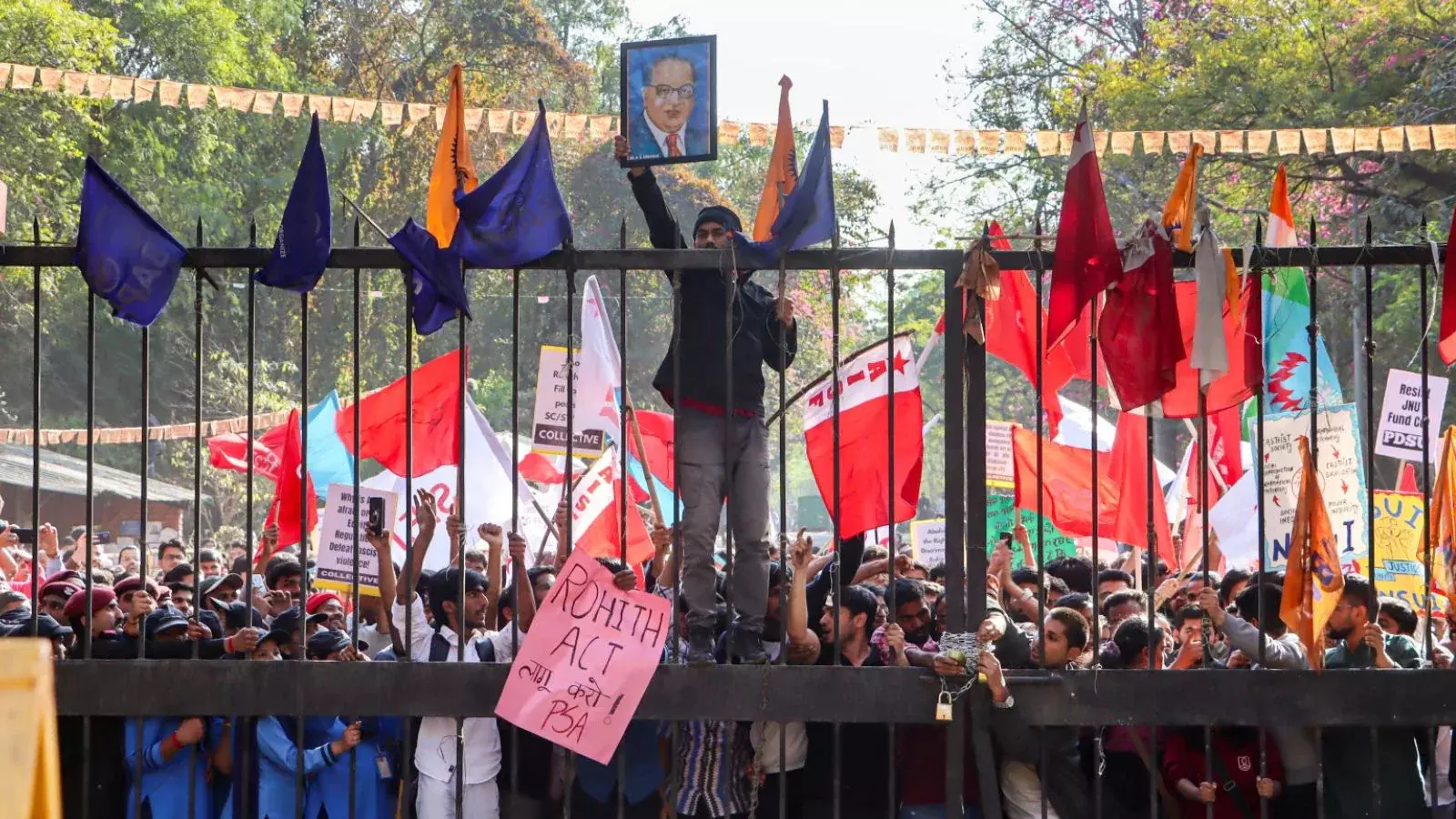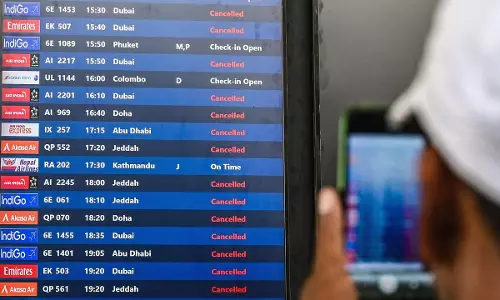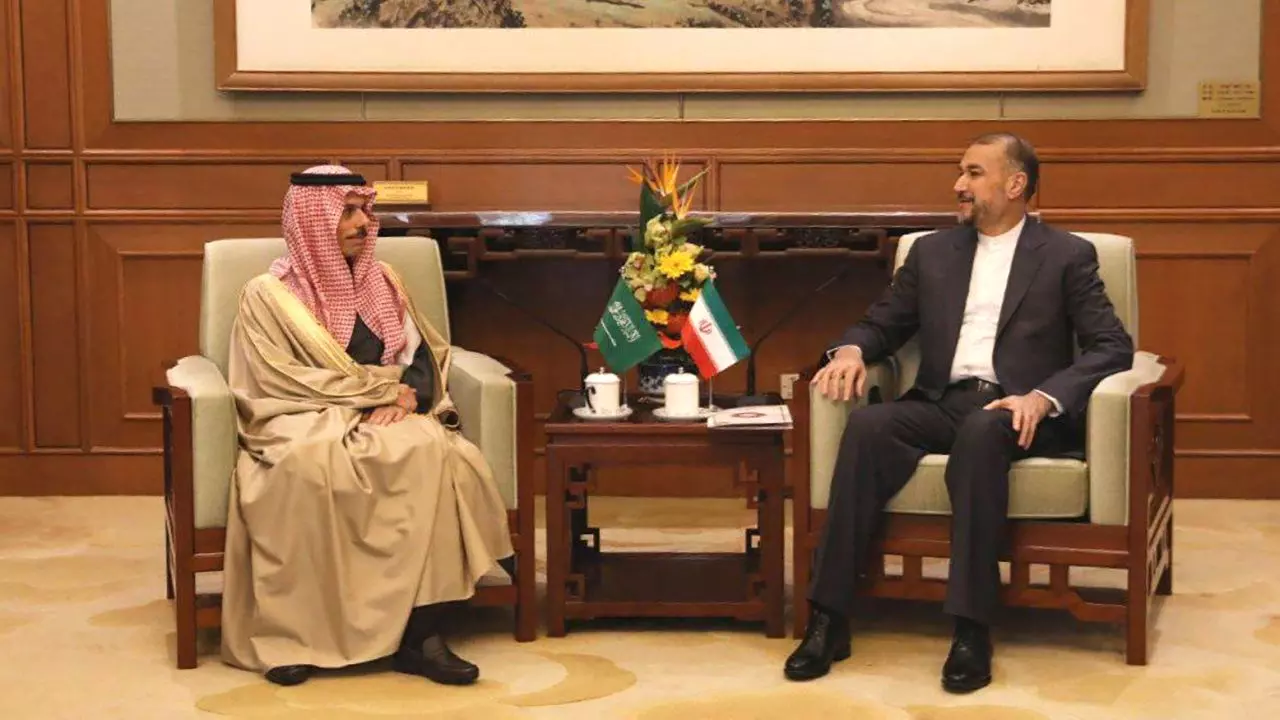
A new Middle East on the horizon?
text_fieldsThe foreign ministers of Saudi Arabia and Iran met at Beijing on April 6, 2023 (Photo courtesy: CNN)
The global powers, to the extent of western powers under the auspices of United States and its staunchest allies in Europe, with the help of their international front-end, the United Nations, have been exploiting the third world countries for many years. Or at least that is the perception of a good percentage of population in the developing world. And to many observers, this is not merely an allegation but a reality felt by many countries during the ongoing existential crisis they are passing through in current times.
The financial institutions like international Banks, IMF and the World Bank, the pacts and accords imposed upon the third world in the name of development all have contributed their own bit to the total financial chaos and unchecked economic pandemics in several of the third world countries. The fundamental objective of the global powers was to make all the countries remain far from being self-sufficient. It is the urge for self-sufficiency that acts as the powerful factor making people, communities and countries least dependent on the outside powers, and which will sure pave the way for smooth development of their countries in all spheres of life.
One can see in all accords, treaties and deals signed between the governments in the third world or eastern world and the mechanisms controlled by the world powers like IMF, World Bank etc., a hidden feature that prevents the third world countries or the developing countries from becoming self-reliant in spheres crucial for the vital development of the people of these countries.
But, a shift occurred recently in the perception of the regimes in the Middle East about the real workings of the western agenda, its hidden plans to make them dependent on the west and their deceptive strategies and dual standards regarding the sustainable development of their countries. That perception change also occurred regarding the unstinted support given by the western powers to Israel to make it the most powerful and equipped entity in the region in all spheres. All these have prompted the new leaderships in the Gulf countries like Saudi Arabia and Qatar and in some Middle Eastern countries like Algeria to rethink their ties with the western countries in different domains including military cooperation - the most sensitive area. This can be seen reflected in the current vision and strategy followed by the leaders in Saudi Arabia, Qatar, Turkey and Algeria and by some other countries belonging to neighboring region like Azerbaijan and Caucasian countries.
And it is certain that a new era is being born in the region that will not be confined to the countries that are busy with creating their own world. This will mark the beginning of a new emerging platform in which most of the Arab countries will be partners to choose their own course and to determine their own destiny free from the strategies and plans by the western world. Such covert strategies in the past, they believe, had made these countries dependent upon the western powers and any move against this was considered as a threat to the western interests. All this is enough for an observer to infer that fundamental shifts are taking place there and a new sun is rising in the horizon of the Middle East, the most sensitive region of the world that witnessed many historic events in the past few decades.
Several happenings reflect the changing big power equations in the region chief of which is the decision of Saudi Arabia and Iran to restore relations between the two countries, and talks between Saudi Arabia and Syria on resumption of consular services and diplomatic relations between them. In addition, the leaning of Saudi Arabia towards Turkiye, Russia and China and the shifting of policy of UAE towards Turkiye embody the same shift in relations with outside powers. No different are the newly formed deep ties between Qatar and Saudi Arabia, after a break of diplomatic relations for over three years and the independent moves being made by Turkiye in its internal affairs and foreign policies, for example in its acceptance of Finland as a new fellow member of Nato, much to the displeasure of Russia. Its growing power in the economic and military fields also underline the fact that a new dawn is going to arrive in this region, which had always been an intersection of interests of global powers for many years.























